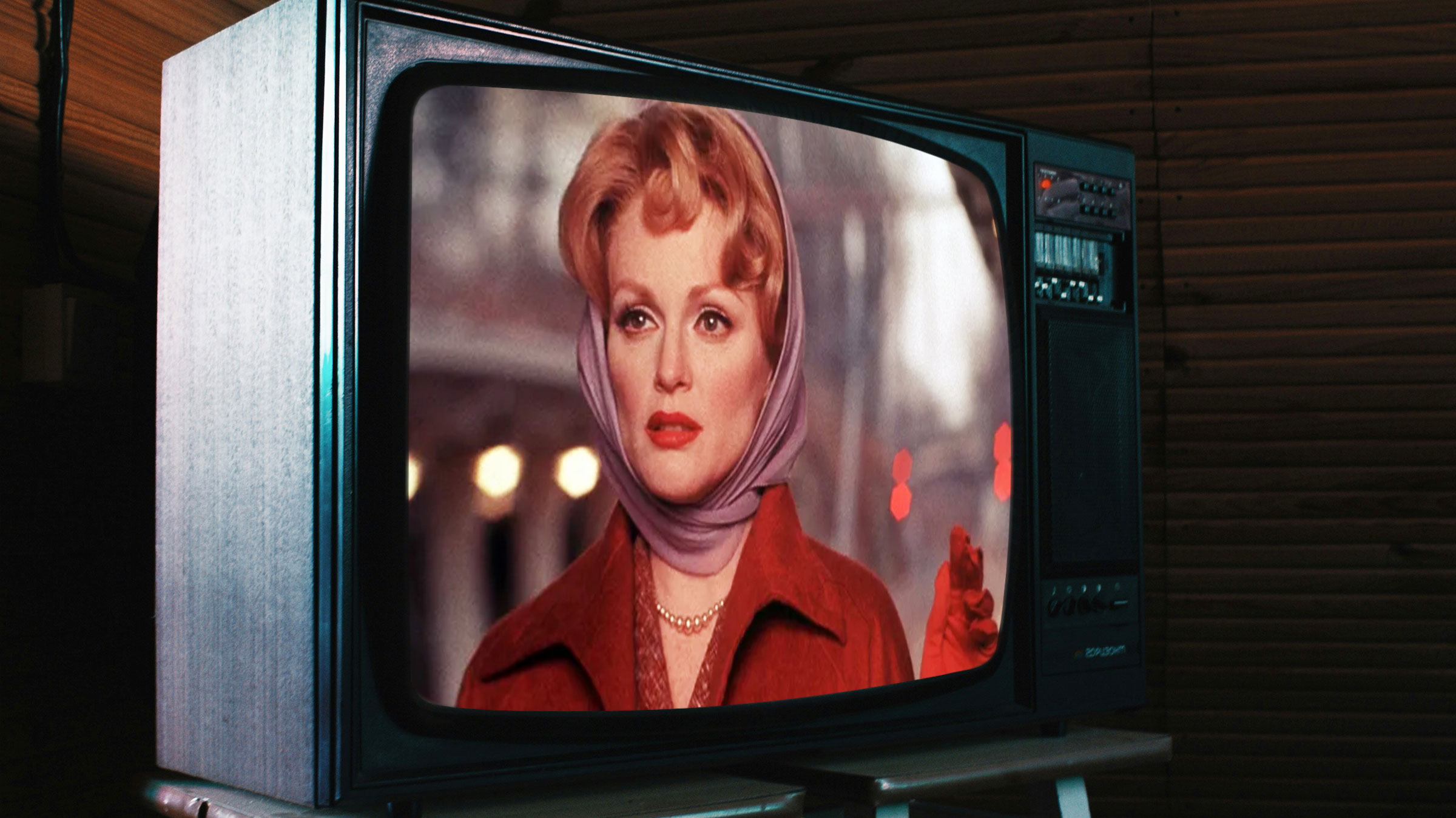Upon the release of May-December, Document curates of list of his most sumptuous, unsettling films
Todd Haynes loves a mirror. In a career spanning four-decades, Haynes has placed beloved actresses—Cate Blanchett, Rooney Mara, Toni Collette to name a few—at halo-lit vanities, in streaky bathrooms, on the front page of newspapers. His latest film May-December innovates on this throughline in a dress shop fitting room mirror: Disgraced matriarch Gracie Atherton-Yoo (Julianne Moore) and TV actress Elizabeth Berry (Natalie Portman) sit on a bench as Gracie’s daughter Mary tries on frocks for graduation. Elizabeth will be playing Gracie in an independent film about the affair she had with now-husband Joe (Charles Melton) when he was thirteen and she was 36. For now, she shadows the woman she will play, at times furiously taking notes. In the dressing room triptych, Elizabeth is taking mental ones. She crosses her legs, then her hands, and opens her mouth just slightly, until the end of the scene, when we notice through the mirror that she has morphed into a slightly breathier, heightened version of her character, Gracie. Each notices the other watching in only the smallest of gestures.
A director who loves pop culture history as much as he loves film, Todd Haynes would seem to naturally bend toward a meta-commentary of scandal, consuming and repackaging itself. Yet he’s been refracting these gestures back at his audience since his 1988 short Superstar: The Karen Carpenter Story, which employs both Barbie dolls and archive footage to depict the singer’s short life. Entrapment—whether in marriages like in Far From Heaven or bodies as in Safe—reverberates throughout his oeuvre. Housewives become the most interesting subjects imaginable in Haynes’s care. His leading women have to perform for those around them as much as the audience, a doubled idea which Haynes exploits in Far From Heaven until it becomes almost pornographic in its artificiality. The domestic sphere is always up for evaluation.
Upon the release of May-December, Document offers a guide to Haynes’s best films, ones that will entrance as much as unsettle.
“[Julianne Moore] has never been better at playing a woman who is not just unraveling, but absent.”
Safe (1995)
An eerily prescient eco-horror, Safe follows L.A housewife Carol White (a magisterial Julianne Moore) as she begins to develop an unexplained “environmental illness.” Read as an analogy for the fear and isolation of the AIDS crisis, the film explores aversion to the industrialized world when everything about it might kill you. Beauty becomes body horror when Carol gets a perm and immediately suffers a nosebleed. The film also marks a decade-spanning collaboration between Haynes and Moore: She has never been better at playing a woman who is not just unraveling, but absent. In a recent podcast feature with Keep It!, Haynes felt that what he asked of the actress was a herculean task. “It was almost like asking somebody to play a person that wasn’t there… to play in negation.”
Velvet Goldmine (1998)
This ’70s psychedelic pseudo-Bowie tale favors style over substance—a rarity in Haynes’s filmography. Journalist Arthur Stuart (Christian Bale) must investigate bisexual glam rocker Brian Slade’s (Johnathan Rhys Meyers) fall from grace, who faked his own murder ten years prior. A musical drama filled with Brian Eno and pastiche, Haynes creates a fantastical examination of both winning fans, and losing them. Supporting performances from Toni Collette and Eddie Izzard round out an already dazzling cast.
Far From Heaven (2002)
Sirkian melodrama in Lynchian suburbia is a difficult balance to strike (let alone maintain for nearly two hours), yet Haynes’s four-time Oscar-nominated Far From Heaven does so brilliantly. Julianne Moore is Cathy Whittaker, a Connecticut housewife who has a perfect marriage, house, and dress collection when she discovers her husband Frank (Dennis Quaid) is a repressed gay man. In this difficult time, Cathy befriends her Black gardener, Raymond Deagan (Dennis Haysbert), and suffers the social consequences in a deeply segregated city. The director pushes melodrama to its limit to examine difficult topics such as homophobia and racism against agonizingly gorgeous sets and costumes, a quintessentially Todd Haynes juxtaposition.
Carol (2015)
In Giovanni’s Room, James Baldwin describes French as “that curiously measured and vehement language, which sometimes reminds me of stiffening egg white and sometimes of stringed instruments but always of the underside and aftermath of passion.” No movie embraces this feeling more than Carol, a lesbian romance between aspiring photographer Therese (Rooney Mara) and glamorous soon-to-be divorcée Carol (Cate Blanchett) against a white Christmas in 1952. Based on Patricia Highsmith’s semi-autobiographical novel The Price of Salt, the film crackles with restraint and undeniable chemistry. Haynes directs Mara and Blanchett at their most piquant. Carol holds the British Film Institute’s top honor as the “best LGBT film of all time” and won the Queer Palm prize.
May-December (2023)
A Russian nesting doll of a film that employs both social commentary and the history of its actors to create its many layers. Portman is firing on all cylinders, playing a TV actress who looks to be taken seriously doing an independent film. Moore—once again a housewife in the Haynesian universe—uses her stunted femininity as the ultimate shield from the truth that she began a relationship with a minor. They chew every line of Samy Burch’s script, understanding the aplomb it requires. Yet May-December is still a Todd Haynes film, exploring much darker subject matter than meets the eye. Charles Melton delivers the best supporting actor performance of the year as Joe Yoo, who is coming to terms with his relationship with Gracie, giving a beating heart to what could otherwise be written off as tabloid camp. Nestled within the film is a line that could be said of all Todd Haynes work, delivered by Portman with pretend Julliard-trained jouissance: “It’s a very human, complex film.”







